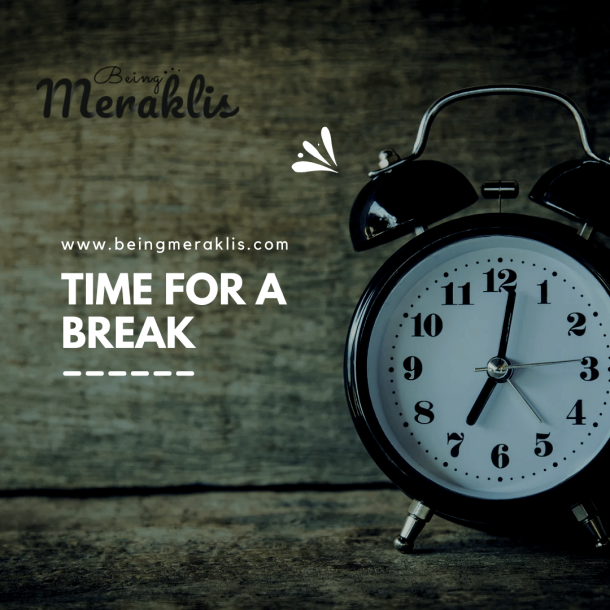Ep 102 – 7 Qs to reflect on when experiencing burnout

Do you find yourself easily irritable or annoyed at work or the people around you? Are you constantly feeling exhausted and drained, no matter how frequently you take breaks? Do you experience unexplainable muscle pains and tension in the joints? Do you find it hard to go to sleep and suffer from insomnia? If your answer was yes to most of these questions, chances are you are experiencing burnout.
Hello, and welcome to the deep dive series on the Being Meraklis podcast. I am Shwetha Sivaraman, your self-awareness coach, here to help you ask the right questions. In today’s episode, we will discuss burnout, why we resist resting so much, and questions to reflect on to dive deep and avoid burnout.
Burnout is quite underrated for the havoc it can create in disrupting our lives, our sense of self, and our feeling of accomplishment. When we feel burned out, we are mentally exhausted, drained, and continually questioning everything we’re doing and its impact. We feel increasingly frustrated with each passing day and are less available to execute the tasks. We barely manage to hold ourselves together to survive each day and lose any sense of accomplishment or personal achievement. Burnout can dehumanise us and make us indifferent to situations, people, or outcomes when left unaddressed for a long time. It crushes our spirit and takes all joy out of the things we love and cherish.
It’s a slippery slope with burnout because the deeper you go down that road, the harder it gets to come back. But burnout leaves a trace; several warning signs tell us there’s something not quite right, and we still do not address it. The challenge is our mindsets.
Here are some ways our minds trick us into going deeper down the burnout hole:
1. There’s too much to do, and we can’t afford a break. When we have too many things on our plate and a sense of over responsibility to our jobs and personal commitments, our minds delude us into believing that continuously being busy and doing more is the remedy. But that only tires us out more. When we are burned out and don’t pause to rest, we lose all sense of perspective on why we are doing what we are doing or how they all add up. We run around like headless chickens, being mindlessly busy flitting from one task to another.
2. Dismissing our being and thinking we can compartmentalise issues The past year has been tricky on the personal front, with many ups and downs and health concerns. Often we think they are personal issues and keep the foot on the gas at the same intensity on the work front. But we are not machines. We are thinking and feeling human beings. There are many facets to our being, and if one of the wheels breaks down, we cannot function harmoniously. We cannot compartmentalise emotions and stressors and pretend all is well. We need to pause and process before we can move on.
3. The notion that we must deserve rest. So many of us have been conditioned to believe that rest must be earned. It needs to be deserved. We have to get somewhere, become something and have a meaningful impact before we “deserve” to rest. This stems from a belief that we are not enough. We are enough only if we do certain things or achieve certain things. But that’s not true. Resting is as important as doing. Resting is when we reflect and integrate the lessons learned from our doing.
The reality is we can’t all leave our jobs and travel year-long in the mountains or have the financial security to quit and do nothing. We have responsibilities we must honour as householders trying to lead this life in the best way we know. But nothing prevents us from resting or taking time to recoup before becoming active again. Resting helps us re-assess, re-calibrate, and re-align what we do daily and make our efforts more meaningful and impactful.
Explore which of these mindsets are holding you back from recognising the warning signs of burnout and taking action to mitigate it.
Here are 7 questions to know if you’re experiencing burnout and whether you need to rest, ask yourself these and reflect on your current situation –
1. What are your energy levels at the start and end of the day? Are they your best? Or is something impacting your energy levels
2. What are you avoiding or procrastinating? What’s coming in the way of doing that?
3. Do you enjoy doing the things you love still? If not, what changed?
4. Do you get emotionally trigged more often than usual? What or who are the triggers?
5. Are you dreaming more often? What kind of dreams are you having? If it’s more restless and anxiety-driven, draw patterns and identify what they are trying to tell you.
6. How present are you in your interactions with others, relationships and conversations?
7. What is one small activity you can do daily to rejuvenate yourself? Even if it’s just 10-15 minutes in a day – Take time to do things that help you unwind and reset in some form at the start or end of the day.
Take time to deep dive, and reflect on these questions to ensure you’re proactively addressing burnout before it becomes something bigger. Take pre-emptive measures, get adequate rest, spend time doing the things you love and find a harmony in life that makes you wake up energetically, each looking forward to attending to the many tasks you have planned for the day. If you’re unable to pull yourself out of the feeling of burnout, reach out to clinical psychologists or therapists and actively work towards addressing it. Burnout can significantly impact the quality of your life – make sure to take the proper measures at the right time to live your best life, not someday but every day.
Until we meet again, this is Shwetha Sivaraman signing off. Hoping you have a fabulous week ahead.




